Week Ranking
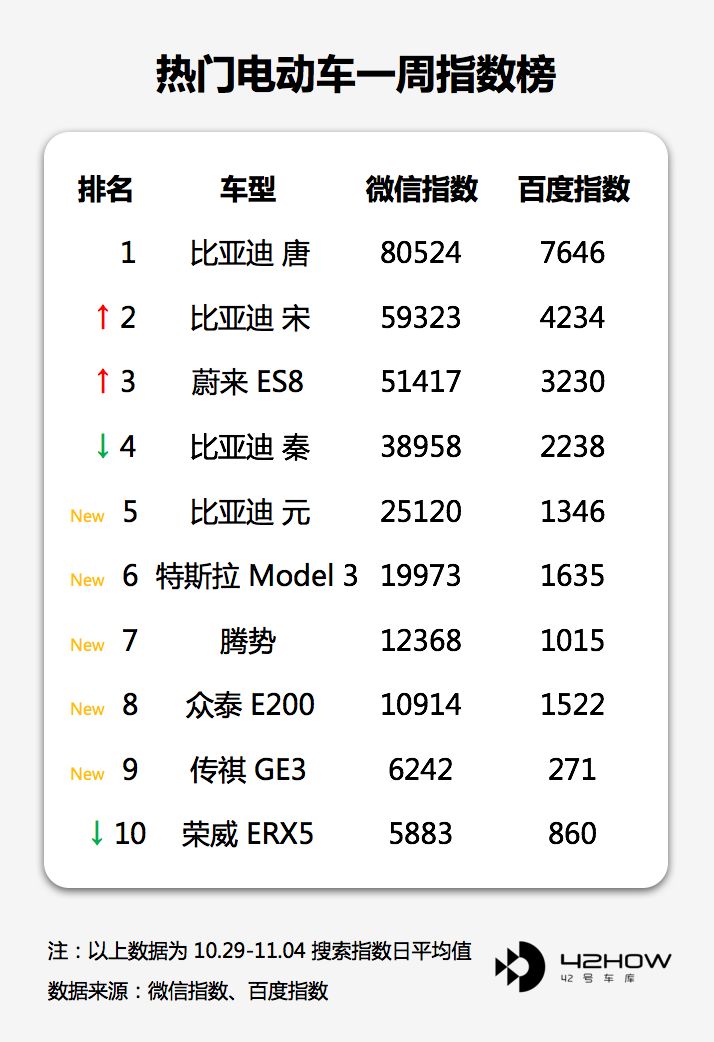
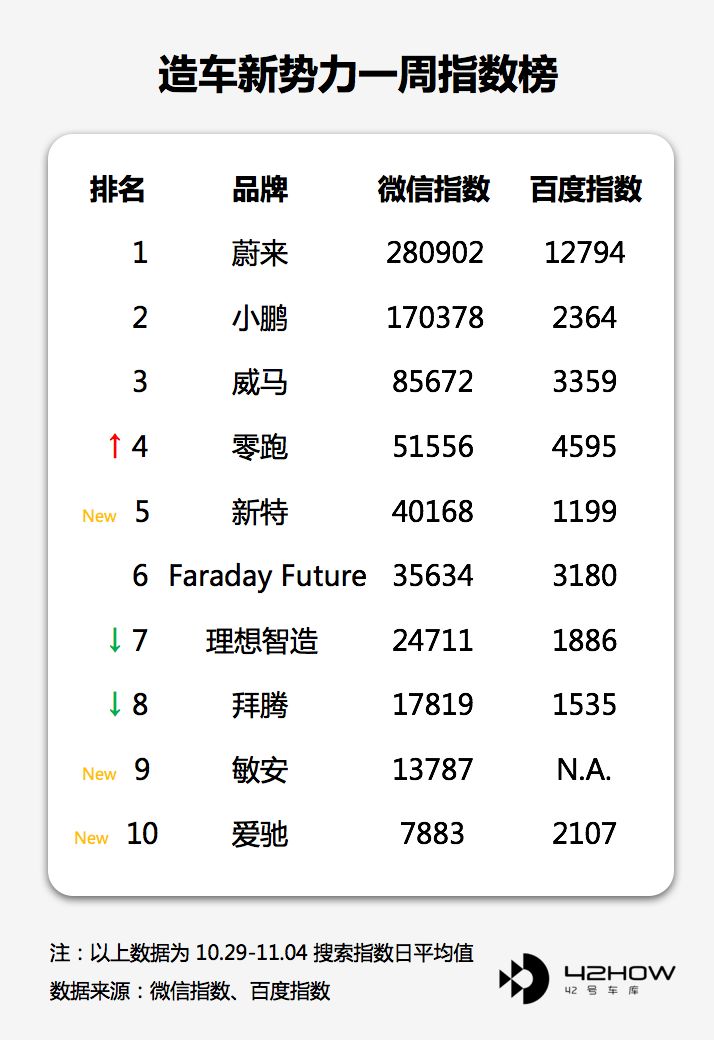
Weekly News
NIO to Increase Capital by 16.66 Billion to Boost Investments in New Technologies
On October 27, at the Shanghai Foreign Investment Major Project Signing Ceremony, a total of 12 projects completed the signing, with a total investment of 23.4 billion yuan. Among them, NIO will increase capital by 16.66 billion yuan in Jiading District, accounting for 70%.
Currently, NIO has two experimental centers in Anting Town, Jiading District, one of which is a global trial production trial center. This time, NIO will increase its research and development investment in the fields of electrification, intelligence, network connectivity, and lightweighting with an additional 16.66 billion yuan in Jiading District.
According to statistics, since its establishment, NIO’s research and development costs for the first half of 2016, 2017, and 2018 were 1.47 billion yuan, 2.6 billion yuan, and 1.46 billion yuan, respectively. Meanwhile, NIO’s losses for the same period were 2.57 billion yuan, 5.02 billion yuan, and 3.33 billion yuan.
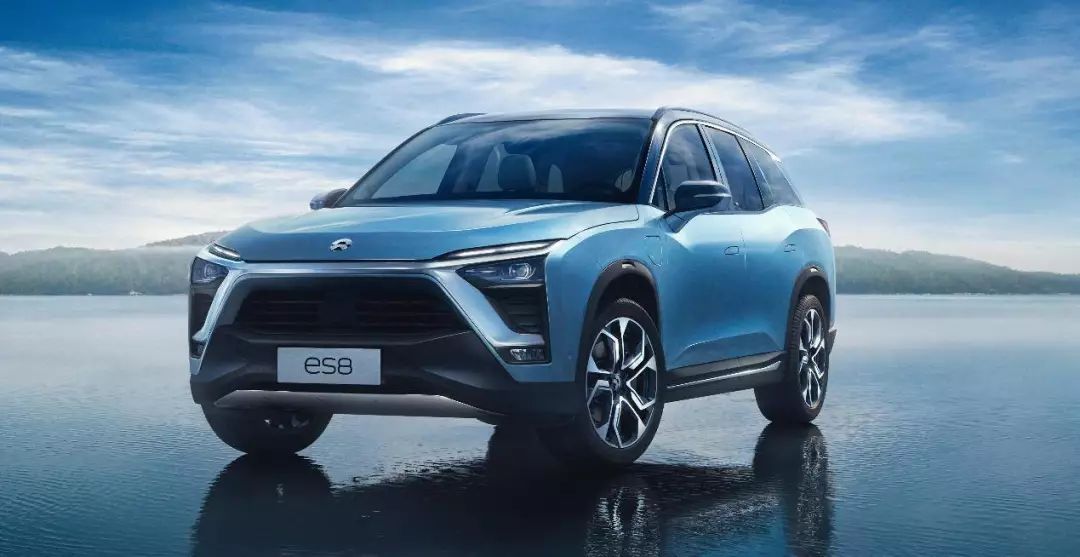
New investment is undoubtedly good news for automakers. We also hope NIO will invest the money in the right place and look forward to the ES6 becoming an excellent smart electric car.
Baidu Unveils Mass Production Schedule for L4-Level Autonomous Passenger Vehicle
On November 1, 2018, Baidu held its annual Baidu World Conference in Beijing, where we paid attention to several points:
-
Baidu and FAW jointly released L4-level autonomous passenger vehicles, which plan to achieve small-scale mass production in 2019 and large-scale mass production in 2020. The first open cities will be Beijing, Changchun, Hainan, and others.
-
Baidu’s autonomous bus “Apollo” tested operation for 120 days in a limited scenario, with more than 10,000 passengers and more than 10,000 cumulative operating miles. It is now in operation at Beijing’s Haidian AI Park. Baidu expects that in 2019, the Apollo new species of autonomous driving (such as unmanned logistics vehicles, sweepers, etc.) will reach 10,000.
-
Baidu and Volvo will collaborate to customize L4-grade passenger cars for mass production.* Baidu proposes the “Vehicle-Roadway Cooperative” solution based on AI thinking to improve urban traffic, by integrating the “people”, “vehicle”, “road”, and “cloud” elements in conjunction with smart cars and intelligent roads. All collected data will be transmitted to the cloud for analysis to make optimal decisions, enhancing urban commuting efficiency. This concept will first be piloted in Changsha, and it is expected that the scale of autonomous taxis in Changsha will reach one hundred by 2019.
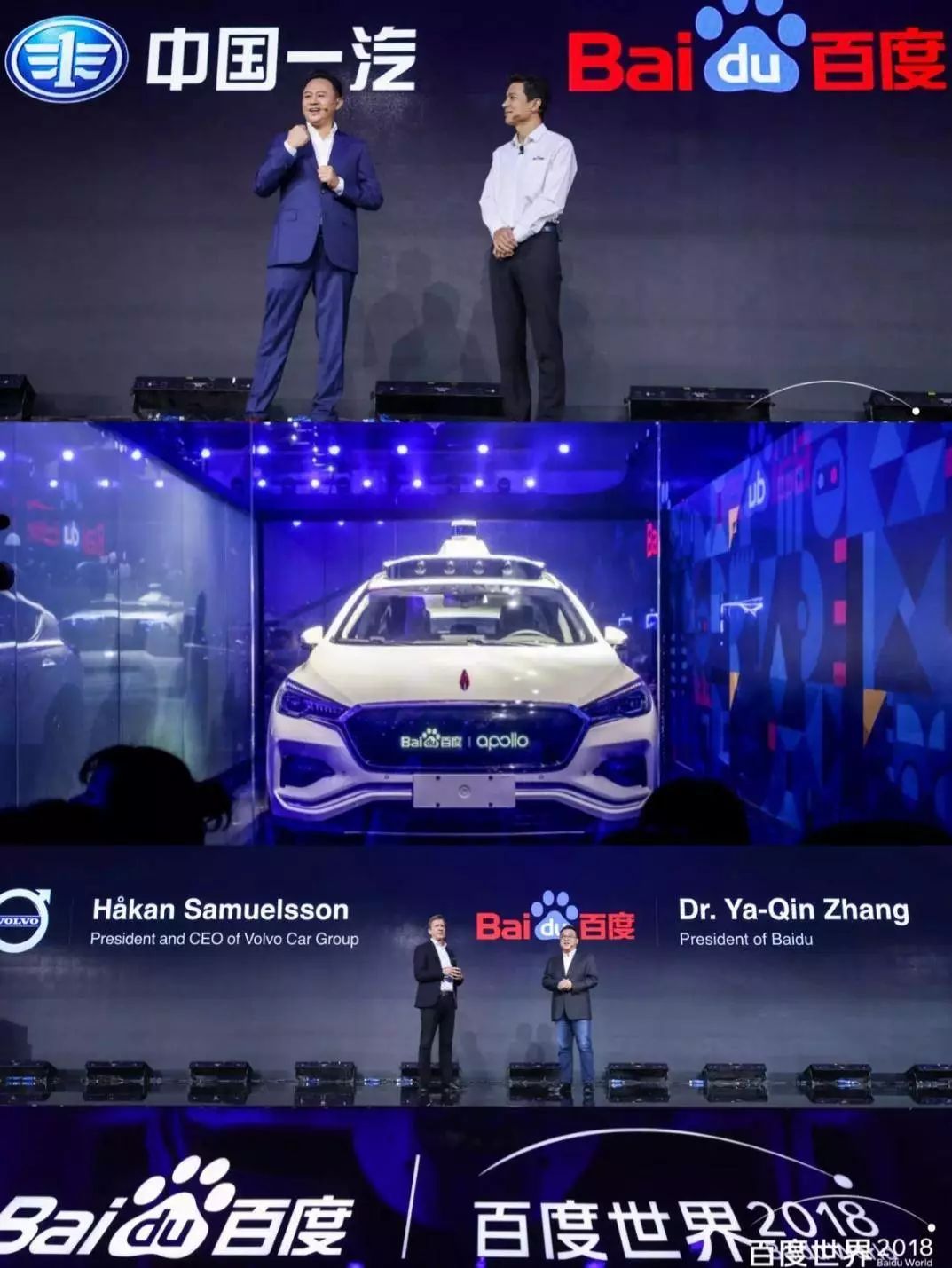
Many previously unattainable concepts are becoming increasingly feasible with the help of modern technology, and future technological development will accelerate, leading to more intense competition. Can Baidu take the lead and impress us in the coming year of 2019?
LI Auto’s first car body officially rolls off the assembly line
On October 30th, Li Xiang Auto held a ceremony for the completion of the welding workshop at the Jinhua Intelligent Manufacturing Base, and the first batch of LI S01 bodyworks were officially produced after more than three months of equipment commissioning. This indicates that the automobile manufacturing process of LI Auto has entered a new stage and is preparing for the production of S01 in the first quarter of next year.
As a new force in automobile manufacturing, LI Auto has many high-level executives from the IT industry. They have chosen independent research and development in the three core systems of three-electric system, intelligent networking system, and automatic driving system. As for mass production, they will cooperate with the OEMs for the entire vehicle, and in-house produce the core components.
WM Motor launches a new round of financing with a scale of 2 billion RMB
It has been reported that WM Motor is initiating a new round of financing and plans to raise at least 2 billion RMB. The estimated valuation of the company is over 20 billion RMB. Insiders revealed that the investment for this new round of financing comes from Baidu, Tencent, Sequoia Capital, and Chengtong Fund. It is believed that Baidu may lead the investment and invest about 1 billion RMB. The funds raised will mainly be used to increase production facilities and R&D.

After the release of WM’s first electric car EX5, it gained recognition from most consumers due to its attractive product performance-to-price ratio. However, the sales service system still needs further improvement. Only by serving early-stage consumers who recognize the products well, can they continue to go further.
Waymo autonomous vehicles approved by California to hit the road without human driversOn October 31st, the California Department of Motor Vehicles announced that Waymo, Alphabet’s self-driving car division, became the first company to obtain a permit for testing autonomous vehicles without human drivers in the front seat. Previously, 60 companies, including Apple and major car companies, had also obtained permits for testing autonomous vehicles, but the license required a human driver to be in the driver’s seat.
The California government stated that Waymo can test more than 30 unmanned vehicles in Santa Clara County. In order to obtain approval, Waymo agreed to continuously monitor the condition of the test vehicles, maintain two-way communication with passengers, and purchase at least 5 million US dollars in insurance. This permit allows Waymo to conduct day and night tests on urban streets, suburban roads, and highways, with a maximum speed of no more than 105 kilometers per hour. In addition, the vehicles are allowed to be driven in foggy and rainy conditions.
The company stated that it will begin testing unmanned vehicles on urban streets in Silicon Valley, gradually expanding to other areas, and Waymo employees will be the earliest passengers.
Waymo’s autonomous driving technology is getting closer and closer to mass production. I am curious about which company will be the next to obtain this testing permit? Traditional car companies or IT companies?
Key figures from Faraday Future resign
This week, Peter Savagian, one of FF’s top engineering directors and former chief engineer for the General Motors EV1 electric car, and Nick Sampson, one of the three co-founders, resigned from FF. Only Jia Yueting, one of the three co-founders, remains at FF. Sampson stated that the company had essentially gone bankrupt in terms of finance and human resources, and his situation would not improve in the foreseeable future. Recent events have had a chain reaction on their employees and families, suppliers, and the industry, so he reluctantly left FF.
FF also issued a statement stating that it is currently facing temporary cash flow difficulties due to Evergrande Health’s breach of contract, which has forced them to take temporary measures in response. During the transition period of about two months, most of the employees who joined FF after May 1st of this year will be on unpaid leave in November and December. For employees who joined before May 1st, they will continue to work on the production and delivery of the FF 91, but their salaries will be temporarily reduced.
The experience of FF is like a roller coaster ride, ups and downs. With most of the core members leaving, what else can Mr. Jia do? Can we wait for the day when FF 91 is produced?
Min’an automotive factory is completed, first electric SUV is named “Voyah”
On November 2nd, the completion ceremony of the Min’an automotive factory and the global partner conference were held in Huai’an, Jiangsu. At the event, Min’an automotive’s first production model, “Voyah”, was officially unveiled. The vehicle is positioned as a pure electric SUV, and has completed development and trial production and entered the experimental verification stage.
Jiangsu Min’an Automotive is an electric vehicle (EV) development and manufacturing company under Minth Group. In 2008, Minth Group launched the new energy vehicle (NEV) strategic project with a total investment of RMB 8.3 billion, including RMB 3 billion for the first phase.
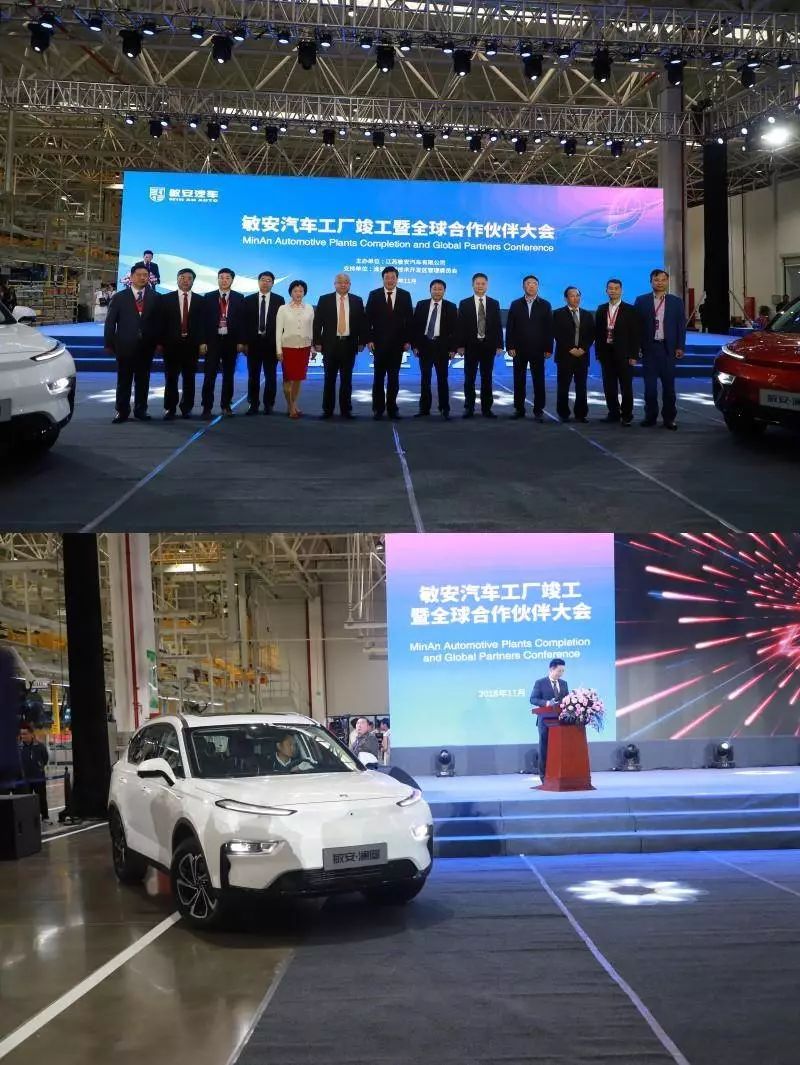
The Min’an automotive factory covers an area of 947 acres, with 577.05 acres for phase-I construction, including ten functional areas such as stamping, welding, painting, final assembly, PCAK, testing, whole vehicle parts logistics, test track, commercial vehicle logistics, office area and living facilities. The intelligent equipment level of the factory exceeds 90%, meeting the requirements of flexible and intelligent production. After phase-I is completed, the factory can achieve an output of 50,000-80,000 vehicles.
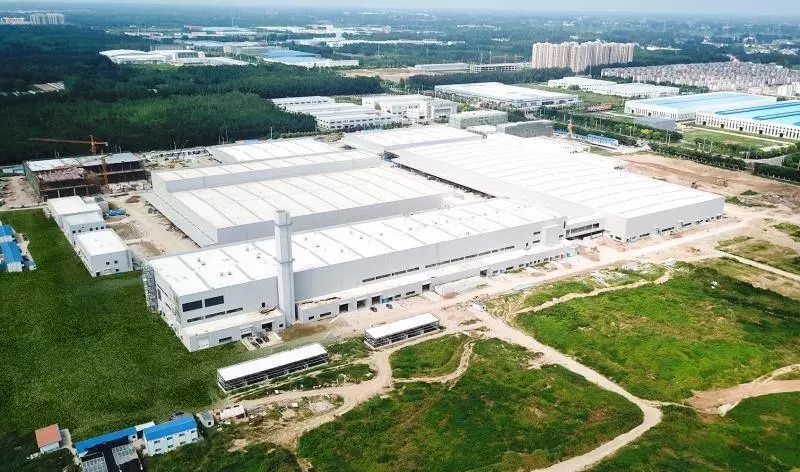
In the future, Min’an automotive will implement the “328 strategy” and a diversified market operation model. By 2023, with two independent vehicle platforms and eight models, Min’an automotive aims to achieve sales of more than 100,000 vehicles and a production value exceeding RMB 20 billion. Meanwhile, the company will launch phase-II production projects, a national-level unmanned driving test area, and industrial supporting projects to build an industry chain of more than RMB 30 billion.
As early as 2008, Minth Group launched the NEV strategic project. In 2013, Min’an automotive was established. In 2016, Min’an automotive was approved by the National Development and Reform Commission for the project of pure electric passenger vehicles. Over the past few years, Min’an automotive has kept a low profile, apparently different from other new EV startups. We do not know what trump cards Min’an automotive has. We look forward to the moment when the car model is mass-produced.


This article is a translation by ChatGPT of a Chinese report from 42HOW. If you have any questions about it, please email bd@42how.com.
